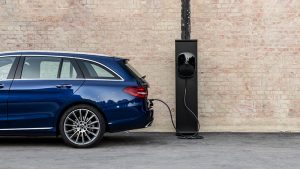We use cookies to make your experience better. To comply with the new e-Privacy directive, we need to ask for your consent to set the cookies. Learn more.


What are the benefits of a plug-in hybrid?
The benefits of a plug in hybrid are many, and it can be a great first step on the road to an electric future. Choosing the right fuel for you is a huge consideration when choosing your next car. With fuel emissions and climate change a big topic in the mainstream media, the ethical decisions surrounding choosing an engine goes hand in hand with practical considerations. A plug-in hybrid is a fantastic option for those of us who aren’t quite ready to take the leap to full electric drive. Combining the undeniable power of Mercedes-Benz traditional fuel with the innovation of an electric motor, a plug-in hybrid is a fantastic first step. The benefits include reduced environmental impact, savings on running costs and government funding.
Read more about the benefits of a plug-in hybrid
Reduced environmental impact
A plug-in hybrid allows you to manage your emissions. Day to day, shorter journeys that require less power can be completed purely on the electric battery. This will not only reduce your running costs dramatically but also your carbon footprint. Another environmental benefit of a plug-in hybrid is the way that an electric car battery minimises waste. For example, regenerative braking converts power generated from braking back into energy for the car battery.
Economic benefits of a plug-in hybrid
There are a variety of running-cost benefits for plug-in hybrid drivers. If you are able to run your day to day journeys on battery power then you will see a dramatic drop in your monthly fuel benefit. The mix of power types also makes for extremely efficient vehicle. The Mercedes-Benz E-Class 300de Estate achieves 188.4mpg, for example. There are also tax benefits for a plug-in hybrid. As a business customer your benefit in kind savings are greatly increased if choosing a plug-in hybrid vehicle. Our company car tax calculator is a great tool to see the savings you could make. Even as a personal customer, your annual tax bill is greatly reduced for a plug-in hybrid vehicle. Road tax is calculated on the CO2 emissions of your car, its price and the year in which it was registered. So, your plug-in hybrid is charged reduced road tax, while fully electric vehicles are exempt.
Is now a good time to make the change?
With government target set for the sale of new petrol and diesel vehicles to be banned from 2030, there are several benefits to investing in a plug-in hybrid sooner rather than later. Mercedes-Benz Plug In hybrids remain eligible for the Electric Vehicle Homecharge Scheme, a £500 government grant toward the cost of a home charge point. In order to be eligible you must:
- Have off-street parking
- Install an OLEV-approved chargepoint and chargepoint installer
- Have your charge point installed no more than four months ahead of the delivery of your vehicle, or the date that you become the registered driver
This government investment may be withdrawn as plug-in vehicles become more mainstream, so early adopters are likely to benefit more than those who wait!
Should I buy a plug-in hybrid or an electric car?
The answer to this question is based on a great deal of variants. The most important being the nature of your typical journeys. While we are very much on the road to purely electric drive, there remain some limitations. The all-electric Mercedes-Benz EQC has a 290 mile range, which is plenty if you are not making long journeys regularly, however a plug-in hybrid might be a better option if you journeys are more varied. Another important consideration may be the accessibility of public charge points. A plug-in hybrid reduces the risk of being caught out of range of an electric charge point. As the UK charging network sees increased investment, this risk is reducing, but it is an important research point when considering your vehicle purchase. Our charging partner ZapMap can help!
Which Mercedes-Benz’ are available as a plug-in hybrid?
Aspirations are high for the future of Mercedes-Benz ‘EQ’ electric drive programme. The manufacturer unveiled plans for a fully electrified range by 2022 at the Frankfurt International Motor Show, as well as the first all-electric EQC being released earlier this year. As we close the decade it seems we are reaching a turning point in the future of the electric drive. There is a great deal of benefits to making the move to a plug-in hybrid.
